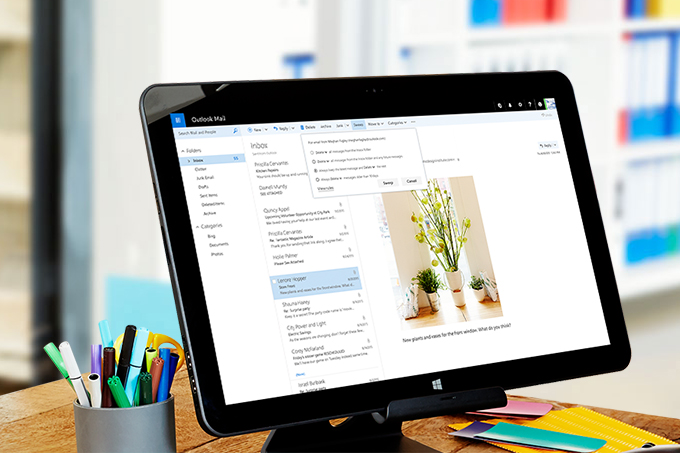
For $3.99 per month, subscribers will be able to set up five personal email accounts with a customized domain name — the registration fee for the domain being waived for the first year. Calendars, contacts, and documents can be shared between those accounts with a minimum of effort, making this an enticing option for small businesses.
The comparable Google Apps email subscription can’t really compete with that bargain pricing. Despite offering more in the way of online storage and other business tools, it’s priced at a flat rate of $5 per user per month, making it far less cost effective for use by small enterprises.
Of course, an attractive price point isn’t the only advantage that Outlook Premium has at its disposal. The fact that the service is so directly linked to the Windows OS and Microsoft’s Office suite, not to mention that Outlook has long been considered the standard by many businesses, are all factors that should work in the favor of this new subscription program.
Microsoft will apparently be partnering with GoDaddy to handle the domain registration component of the service, according to a report from The Next Web. It’s also been confirmed that an active subscription will ensure that a user’s inbox will be free from advertising.
Microsoft is currently trialing its new email service with a one-year pilot program. This advanced access to Outlook Premium signups is by invite only, so now’s the time to find someone who’s already gained entry if you’re looking to get a sneak peek before subscriptions are open to all.


